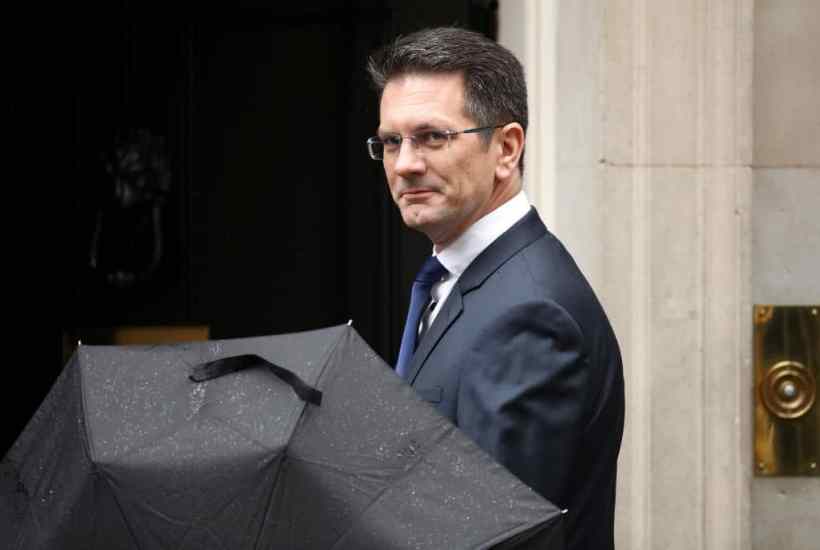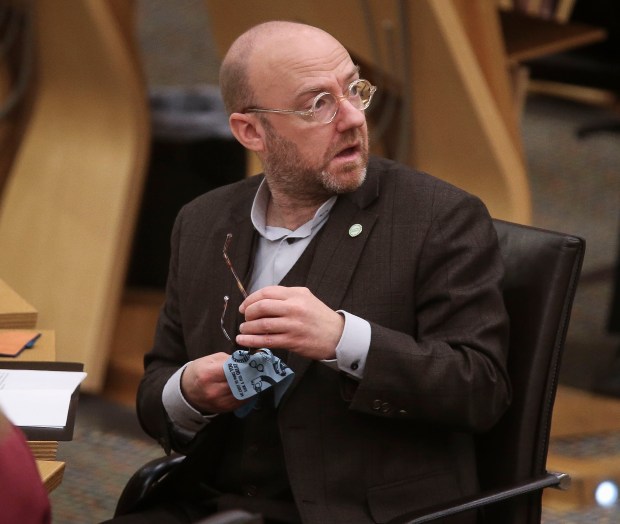Steve Baker’s decision to boot Nadine Dorries out of a group chat of Conservative MPs has captured the attention of the Sunday papers, though it’s difficult to know where our sympathies are supposed to lie. Anyone who joins a group chat with either Baker or Dorries deserves all they get.
The Secretary of State for Digital, Culture, Media and Sport got shown the door for defending the Prime Minister, a minority pursuit among Tory MPs these days. Her comments, which described Boris Johnson as a ‘hero’ who ‘won an 83 majority and delivered Brexit’, were spurred by an earlier post by Marcus Fysh, the MP for Yeovil and a staunch Brexiteer. Fysh wrote:
The whole point of Brexit is radical supply side reform and moving away from the EU model, yet ministers are happy just to give hard won power put in their hands to achieve this to officials who will do the opposite.
The second part of that statement is reasonable enough. The first part underlines the continued failure of the Conservative party to understand the 2016 referendum result, the outcome of the 2019 election and the shifting demographics of the Tory vote. No doubt some Tories backed Brexit for economically liberal or Thatcherite reasons, but it is not why Leave won the referendum or what their party’s new voters want from British independence.
Lord Ashcroft’s exit polling on referendum day found that 49 per cent of Leave voters ticked that box on the ballot paper because they believed ‘decisions about the UK should be taken in the UK’. A further third (33 per cent) cited as their main reason a belief that Brexit ‘offered the best chance for the UK to regain control over immigration and its own borders’, while 13 per cent were motivated by concerns about ‘how the EU expanded its membership or its powers in the years ahead’. Just six per cent gave trade or the economy as their deciding factor.
In the 2019 election, the Conservatives enjoyed their highest level of support by social class among C2s, enjoying a 20-point advantage over Labour. These electors were not voting for supply side reform, radical or otherwise. Tories who have never got over their teenage crush on Margaret Thatcher have convinced themselves that it’s perpetually 1983 and the punters are gagging for talk about banishing from our land the dark divisive clouds of Marxist socialism.
This misconception shines through all the leadership chatter emanating out of Westminster. Liz Truss is spoken of as a favourite of younger, free-market minded party members. Rishi Sunak is said to be the sensible, centre right choice for his scepticism about further spending on the pandemic and his desire to cut taxes. Neither should be anywhere near the running, let alone in it.
Truss is the toast of the Adam Smith Institute and while they’re a good bunch of lads and the first people I’d turn to for Hayek memes, they are wholly unrepresentative of the average Red Wall voter. Sunak appears to be an ideological doppelgänger of George Osborne and his preference for controlling spending and lowering taxes, while all the rage in 2011, feels very dated in 2021.
It was an extraordinary decision for many electors to vote Tory in December 2019 and they will not be convinced to do it again by a reversion to fusty old dogma about state-slashing and supply side economics. The Republican Party is learning a similar lesson across the pond, where conservative intellectuals mewl about the loss of their party and their conservatism. Principles matter, of course, but if you don’t go with the voters, you don’t go anywhere. The voters are not clamouring for quirky blonde Thatcherism or a suaver, dishier Osborneism.
True-blue Tories might still see it as their duty to resist socialism but, to the extent the mode and scale of state intervention over the last two years has been socialism, then we are all socialists now. We still don’t know what impact 18 months of having wages paid and small businesses propped up by the government will have had on attitudes towards interventionism but it seems unlikely to have made the public more libertarian.
If anything, a state which has proved it can finance much of the economy from Number 11 is one with fewer excuses for its failure to expand the housing stock, reduce clinical vacancies in the health service and step up the recruitment of additional police. This is before we even factor in those conservatives who see their primary foe nowadays not as a confiscatory tax regime but as authoritarian progressives marching through the institutions with sinister and intolerant ideas about race, gender and free speech.
Depending on whether he is able to up his game in the next six months or so, Boris Johnson may prove an asset or a liability to the Tories’ reelection hopes. But one advantage he has over those who seek his replacement is that he understands what the Tory party is now, who it represents and what they want. If he has lost touch with the Britain of the 2020s, it will do no good replacing him with someone still talking to the Britain of the 1980s.
Got something to add? Join the discussion and comment below.
Get 10 issues for just $10
Subscribe to The Spectator Australia today for the next 10 magazine issues, plus full online access, for just $10.



















Comments
Don't miss out
Join the conversation with other Spectator Australia readers. Subscribe to leave a comment.
SUBSCRIBEAlready a subscriber? Log in